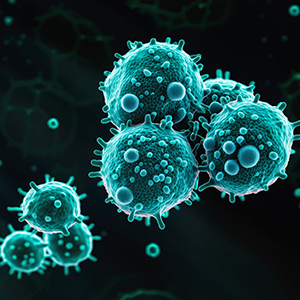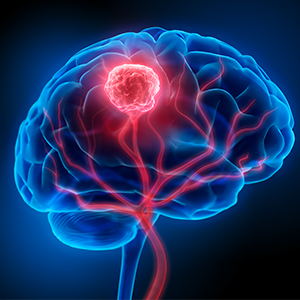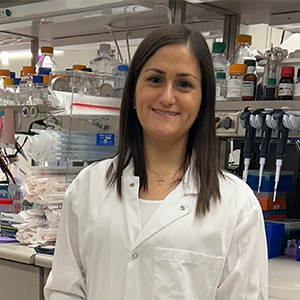-
Researchers review how sex steroids change gut, vaginal microbiome
It is well-established that the human body's microbiome ― the bacteria in the gut ― dramatically affects health and disease. However, the role of the gut in women's health outcomes is largely unknown. Mayo Clinic and Wellesley College researchers focused on how the interactions of steroids on gut and vaginal microbiomes influence women's health outcomes in a review published in Trends in Endocrinology & Metabolism.
"We can characterize each phase of a woman's life by distinct hormonal states that drive the overall makeup between the gut and vaginal microbiomes," says Marina Walther-Antonio, Ph.D., a researcher in Mayo Clinic's Department of Surgery who has a joint appointment in Mayo Clinic's Department of Obstetrics and Gynecology. "These host-microbiome interactions underlie disease pathology in disorders affecting women across their lifetime, including bacterial vaginosis, gestational diabetes, polycystic ovary syndrome, anxiety, depression and obesity."
Role of gut, vaginal microbiota
Researchers looked at how sex steroids change gut and vaginal microbiota ― that is, those microorganisms that inhabit the body, including bacteria, viruses, archaea, protozoa and fungi. Researchers went on to link the composition and function of these microbiota. The sudden surge in sex steroid levels during puberty is associated with lower diversity of vaginal microbiota. This lower diversity suggests that the increase in steroid hormones at puberty creates a new environment, shaping the adult female gut and vaginal microbiomes.
"This new adult female hormonal setting establishes a balance between the interaction of sex steroids and the vaginal and gut microbiota, profoundly impacting women's health across all life stages," says Dr. Walther-Antonio. "Gut microbiota control circulating estrogens in the estrobolome (bacteria dedicated to maintaining estrogen balance), and in turn, these circulating estrogens help shape the vaginal microbiota, driving reproductive tract health."
The researchers noted that gut and vaginal microbiomes appear to have critical overlapping functions. The gut and vaginal microbiome are connected in a wide range of disorders and disease states affecting women across their life span, including polycystic ovary syndrome, unexplained infertility, obesity and endometrial cancer, explains Dr. Walther-Antonio.
The role of the gut-brain axis
Mounting evidence suggests that steroids and gut microbiota acting via the gut-brain axis influence mental health changes, including depression, postpartum depression, and anxiety, that can occur throughout women's life phases.
Anxiety disorders peak during adolescence and females have a higher risk and degree of severity than males. This sex difference may be due to the interactions between estrogens and the hypothalamic-pituitary-adrenal axis. Researchers stated that although the exact cause is poorly understood, hormonal fluctuations throughout the menstrual cycle influence mood, particularly anxiety and depression, in premenstrual syndrome and premenstrual dysphoric disorder.
Sex differences in gut microbiota also can contribute to sex differences in anxiety disorders. Researchers indicated that recent studies demonstrate that the gut-brain axis is sexually dimorphic regarding the gut microbiota composition, resulting in differences in downstream targets, including the immune and neuroendocrine systems, and susceptibility to various disorders.
Although it is well-established that the gut microbiota affects brain health and disease through the gut microbiome-brain axis, future research on the effects of the vaginal microbiota is necessary to determine similar influences.
The role of the menstrual cycle on gut microbiota
Researchers are only beginning to understand the effects of the menstrual cycle on gut microbiota. Given that the menstrual cycle affects various gastrointestinal disorders, including irritable bowel syndrome, it will be necessary for future studies to investigate the effects of the menstrual cycle on gut microbiota and the implications for women's health.
The role of menopause on gut microbiota
In addition to changes in the hormonal milieu, menopause also involves alterations in microbiota. While young adult women have more diverse gut microbiota than their male counterparts, this sex difference is not observed in older adults, suggesting that the lack of ovarian steroids after menopause affects the gut microbiota. The vaginal microbiome changes in tandem with hormonal fluctuations as women enter their menopausal years. Decreased estrogen levels can cause vulvovaginal atrophy and decreased vaginal secretions that contain nutrients to support bacterial growth. Consequentially, increased vaginal pH is observed universally across postmenopausal women. However, differences in postmenopausal women's previous contraceptives and reproductive history can contribute to variation in specific microbial makeup and diversity.
Future research
Researchers noted that there are glaring gaps in the current knowledge and understanding of the ways women's health is influenced over their lifetime by the interactions between steroids, the gut microbiota and the vaginal microbiota. Researchers identified many outstanding questions on topics that need further research.
Acknowledgments
This work was supported, in part, by the National Institutes of Health Clinical and Translational Science grant KL2 TR002379 from the National Center for Advancing Translational Science and by a career enhancement award from National Institutes of Health grant P50 CA136393 (Marina Walther-Antonio) and by Wellesley College Jenkins Distinguished Chair in Neuroscience Funds (Marc J. Tetel). The contents of this work are solely the authors' responsibility and do not necessarily represent the official views of the National Institutes of Health.
Conflict of interest
The Mayo Foundation for Medical Education and Research (inventor Marina Walther-Antonio) has been issued a patent, "Methods and Materials for Treating Endometrial Cancer," US10072303B2. The content of the patent relates to the use of the microbiome to address endometrial cancer. Dr. Walther-Antonio is a member of the scientific advisory board of Luca Biologics Inc. on research related to urinary tract infections, preterm birth and reproductive medicine.
Learn more
Read more stories about advances in individualized medicine.
Register to get weekly updates from the Mayo Clinic Center for Individualized Medicine blog.
Join the conversation
For more information on the Mayo Clinic Center for Individualized Medicine, or visit Twitter at @MayoClinicCIM.

Related Articles









